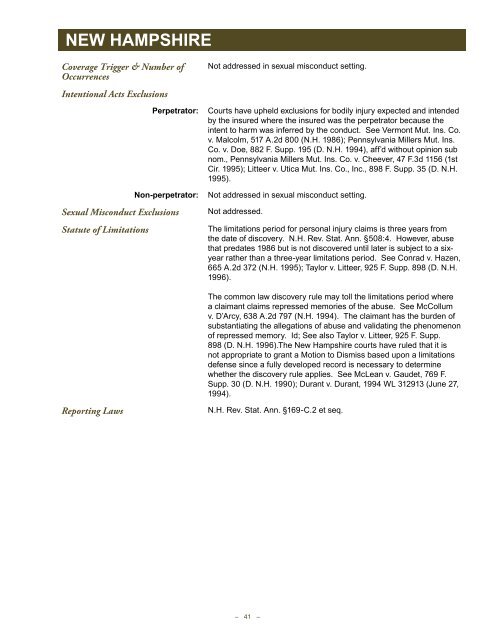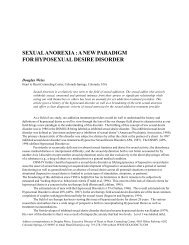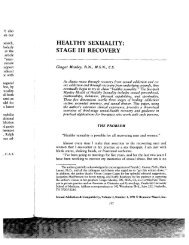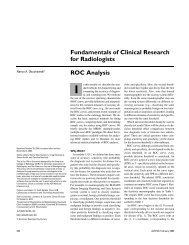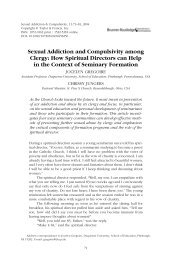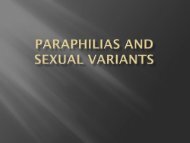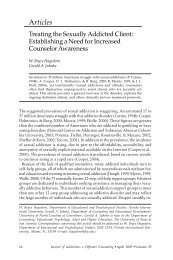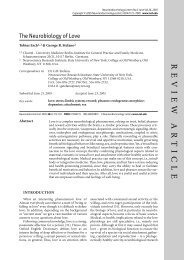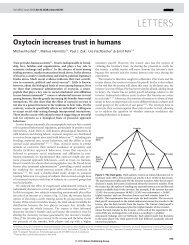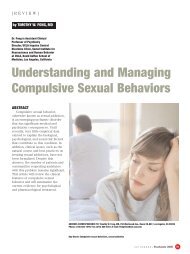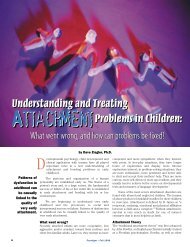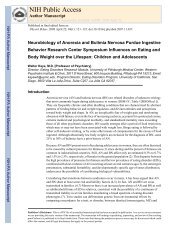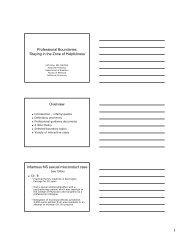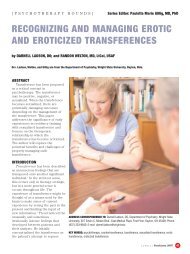Coverage and Liability Issues in Sexual Misconduct Claims
Coverage and Liability Issues in Sexual Misconduct Claims
Coverage and Liability Issues in Sexual Misconduct Claims
- No tags were found...
You also want an ePaper? Increase the reach of your titles
YUMPU automatically turns print PDFs into web optimized ePapers that Google loves.
NEW HAMPSHIRE<strong>Coverage</strong> Trigger & Number ofOccurrencesIntentional Acts ExclusionsPerpetrator:Non-perpetrator:<strong>Sexual</strong> <strong>Misconduct</strong> ExclusionsStatute of LimitationsNot addressed <strong>in</strong> sexual misconduct sett<strong>in</strong>g.Courts have upheld exclusions for bodily <strong>in</strong>jury expected <strong>and</strong> <strong>in</strong>tendedby the <strong>in</strong>sured where the <strong>in</strong>sured was the perpetrator because the<strong>in</strong>tent to harm was <strong>in</strong>ferred by the conduct. See Vermont Mut. Ins. Co.v. Malcolm, 517 A.2d 800 (N.H. 1986); Pennsylvania Millers Mut. Ins.Co. v. Doe, 882 F. Supp. 195 (D. N.H. 1994), aff’d without op<strong>in</strong>ion subnom., Pennsylvania Millers Mut. Ins. Co. v. Cheever, 47 F.3d 1156 (1stCir. 1995); Litteer v. Utica Mut. Ins. Co., Inc., 898 F. Supp. 35 (D. N.H.1995).Not addressed <strong>in</strong> sexual misconduct sett<strong>in</strong>g.Not addressed.The limitations period for personal <strong>in</strong>jury claims is three years fromthe date of discovery. N.H. Rev. Stat. Ann. §508:4. However, abusethat predates 1986 but is not discovered until later is subject to a sixyearrather than a three-year limitations period. See Conrad v. Hazen,665 A.2d 372 (N.H. 1995); Taylor v. Litteer, 925 F. Supp. 898 (D. N.H.1996).The common law discovery rule may toll the limitations period wherea claimant claims repressed memories of the abuse. See McCollumv. D’Arcy, 638 A.2d 797 (N.H. 1994). The claimant has the burden ofsubstantiat<strong>in</strong>g the allegations of abuse <strong>and</strong> validat<strong>in</strong>g the phenomenonof repressed memory. Id; See also Taylor v. Litteer, 925 F. Supp.898 (D. N.H. 1996).The New Hampshire courts have ruled that it isnot appropriate to grant a Motion to Dismiss based upon a limitationsdefense s<strong>in</strong>ce a fully developed record is necessary to determ<strong>in</strong>ewhether the discovery rule applies. See McLean v. Gaudet, 769 F.Supp. 30 (D. N.H. 1990); Durant v. Durant, 1994 WL 312913 (June 27,1994).Report<strong>in</strong>g LawsN.H. Rev. Stat. Ann. §169-C.2 et seq.– 41 –


